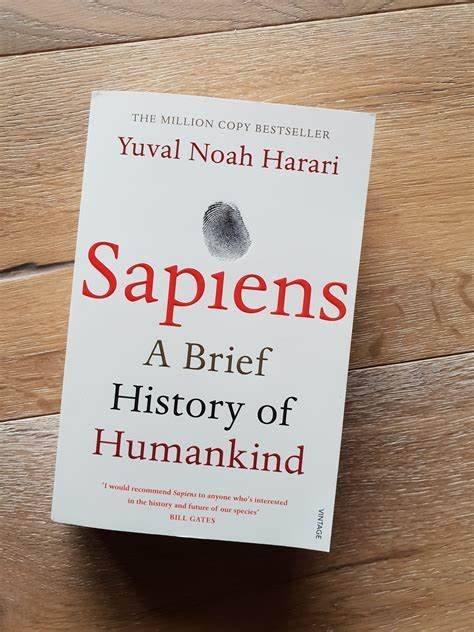The Power of Imagination and Storytelling on Culture
Sapiens: A Brief History of Humankind - How does it relate to culture and society?
If you're like me and have shifted from reading to listening to podcasts, then I'd recommend this audiobook. It's around 15 hours long and spans three significant sections. I discovered that Harari presents a persuasive argument about the nature of humankind, with several 'aha' moments that clarified things for me. Particularly relevant to culture is the human capacity to imagine and share stories around the campfire. This is closely connected to organizational culture and how we structure ourselves in organisations, workplaces, and teams.
In “Sapiens: A Brief History of Humankind,” Yuval Noah Harari explores how humans have created and sustained large-scale societies through shared beliefs and “imagined orders.” These concepts are highly relevant to organisational culture.
Harari argues that humans’ ability to believe in shared myths, such as religions, nations, and corporations, enables large-scale cooperation among strangers. This collective belief system forms the foundation of organisational culture, where shared values, norms, and practices guide behaviour and decision-making within an organisation.
For example, Harari discusses how corporations are essentially “imagined orders” that exist because people collectively believe in their legitimacy and follow their rules. This belief allows organisations to function smoothly, as employees align their actions with the company’s mission and values, fostering a cohesive culture.
Harari also explores how the ability to create and believe in shared narratives has been crucial to human cooperation and societal development. Harari argues that humans dominate the world because of our unique capacity to believe in “imagined orders”—shared myths, religions, and ideologies that exist only in our collective imagination.
This concept is highly relevant to organisational culture and storytelling. In organisations, shared narratives and stories help create a cohesive culture, align goals, and foster cooperation among members. These narratives can include the company’s mission, values, and vision, which employees collectively believe in and work towards. By crafting and maintaining these stories, leaders can inspire and motivate their teams, creating a strong, unified organisational culture.
Harari’s insights highlight the power of storytelling in shaping not just societies, but also the cultures within organisations. Check out this video below in which Harari discusses this:

